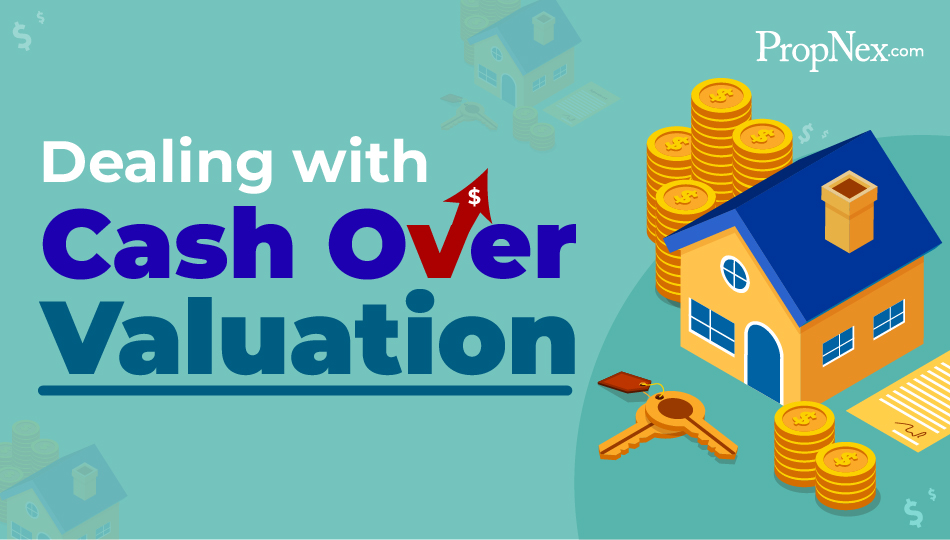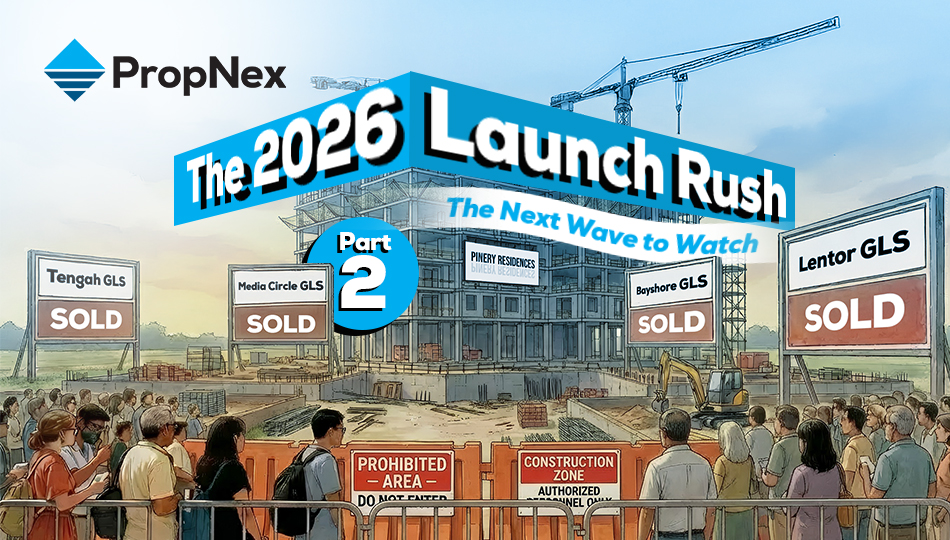Dealing with Cash Over Valuation

When discussing COV, it's important to understand the concept of "value" itself. From a business or investment perspective, value is often quantified by figures and market trends. However, for regular buyers, value can extend beyond these calculations. It can encompass intangible factors that vary from person to person.
Sentimental attachment to a specific location, beliefs in lucky numbers or auspicious directions and even the desire to reconnect with one's past by buying back a family property-these intangible aspects can significantly influence what a buyer perceives as valuable. So, a buyer's decision to pay COV is not only shaped by objective market forces, but also subjective personal value that they place on certain properties.
COV is the amount difference between the purchase price and official valuation of any property. Do note that banks base their loan approvals on this valuation, not the final purchase price. So, if the price you agree on with the seller is higher than the official valuation, the difference, which is the COV, has to be paid in cash. For example, if you purchase a unit for $550,000 but the official valuation is only $500,000, then you incur a COV of $50,000.
While COV is commonly associated with Housing and Development Board (HDB) resale flats, it's also relevant for private residential and commercial transactions. The key difference lies in how the official valuation is determined. For HDB resale flats, the official valuation is set by HDB themselves. On the other hand, private residential and commercial properties rely on valuations conducted by qualified professionals typically associated with a bank or the Singapore Institute of Surveyors and Valuers (SISV).
For residential developments, the primary driver of COV is the high demand for housing that far exceeds available supply. Favourable market conditions such as economic growth and low interest rates can drive up these demands. This competitive environment pushes buyers to offer more than the valuation to secure their preferred unit, be it a 3-room, 4-room, 5-room, or even an Executive Maisonette (EM) or Executive Apartment (EA). Accordingly, sellers are also inclined to hand their property to the highest bidder.
Aside from that, flats in desirable locations with convenient access to amenities like MRT and bus interchange tend to command higher COVs. So do properties with good conditions and features. Size, layout, renovation and furnishing affect COV, which is why well-maintained units with modern designs may cost more. However, as we have mentioned, some buyers perceive additional value beyond these metrics and are willing to pay COV for them. These include certain preferences, sentimental value and even superstitious beliefs.
For commercial properties, the motivations behind COV come down to advantages for business and investment potential, and these are mainly driven by location. Strategic location does a lot for a business, especially when there is high foot traffic. So, areas near amenities like transportation hubs, shopping malls and hotels can attract more potential customers, a desirable value in the eyes of business owners.
Buyers may also be willing to pay COV to have certain features that add convenience to their business. For example, someone who is interested in buying a warehouse might keep an eye out for high ceilings, large loading bays and heavy duty floors.
Another aspect to consider is the buyer's vision for the future. Investors might be willing to pay COV if they think the property has potential for great returns. Perhaps the property is in a developing area and its value is bound to appreciate in a few years. Or, maybe the property can attract tenants, which can generate rental income that could surpass the initial amount invested.
As COV becomes more common, property prices in general can experience inflation, creating a shift in market dynamics. Buyers willing to pay significant COV set a new benchmark that pushes prices beyond their true market value. Sellers become incentivised to list their flats at higher prices, setting off bidding wars. This can create an unsustainable bubble, where prices become detached from actual property worth. As a result, buyers are less certain of the true cost of a flat, making it difficult to budget and plan effectively.
Fortunately, the government closely monitors market trends including COV levels. This allows them to assess the situation and introduce proper cooling measures and policies to stabilise prices and reduce the prevalence of COV. In the case of residential developments, HDB can also increase the supply of Build-To-Order (BTO) flats to provide more options for homebuyers and ease pressure on the resale and private market.
For sellers, COVs can boost profit and gains, but for buyers, it can be a burden. However, there are ways to minimise and even avoid COV, though it's not foolproof. The best way to do that is keep up with the latest information. You can get connected to our agents, who have access to tools like PropNex Investment Suite, which provides access to the most current (LIVE) data, dynamic market analysis and expert insights. This real-time picture will help you judge objectively whether or not a property is overvalued based on recent trends and expert analysis. Plus, it will help you get a good grasp of current market trends in your desired location and preferred flat types. Don't go in blind. It's crucial to understand the playing field before you start making offers.
Furthermore, knowing the official valuation of a property provides a realistic benchmark that you can use as leverage to push for a lower price from the seller. It's a good starting point for negotiation and it will help you avoid situations where you might unknowingly overpay. To check HDB's valuation, you must pay an option fee, so try to negotiate that with the seller as well. For private residential and commercial properties, you can seek help from a third party (banks or SISV) to check the official valuation. Remember, COV can only be paid by cash and cannot be covered by your HDB loan or CPF funds, so having a good negotiation strategy and a clear financial plan is crucial. To learn more about financial planning, you can read our articles on housing grants as well as debt and mortgage ratios.
That said, before you even begin searching for a unit, set a realistic budget. Don't just factor the asking price but also consider potential COV, down payment and future loan repayments. Bidding wars can be intense, so don't let emotions cloud your judgement. Stick to your budget and walk away If the price is not within your comfort level.
Additionally, you should identify your essential requirements like location, flat size and amenities. You want to prioritise these needs and be more flexible on less crucial aspects, so don't get fixated on one specific flat. For example, if location isn't a huge deal for you, you can find a unit in less popular areas that offer better value and lower COV.
COV is a big part of the property market, but it isn't the only factor to consider. So don't let COV pressure you into making a rushed decision that might have a negative financial impact down the line. Follow these strategies and remain disciplined to secure a home without breaking the bank, even in the presence of COV. And if you ever need any help, you can always come to us for valuable insights.
Views expressed in this article belong to the writer(s) and do not reflect PropNex's position. No part of this content may be reproduced, distributed, transmitted, displayed, published, or broadcast in any form or by any means without the prior written consent of PropNex.
For permission to use, reproduce, or distribute any content, please contact the Corporate Communications department. PropNex reserves the right to modify or update this disclaimer at any time without prior notice.












